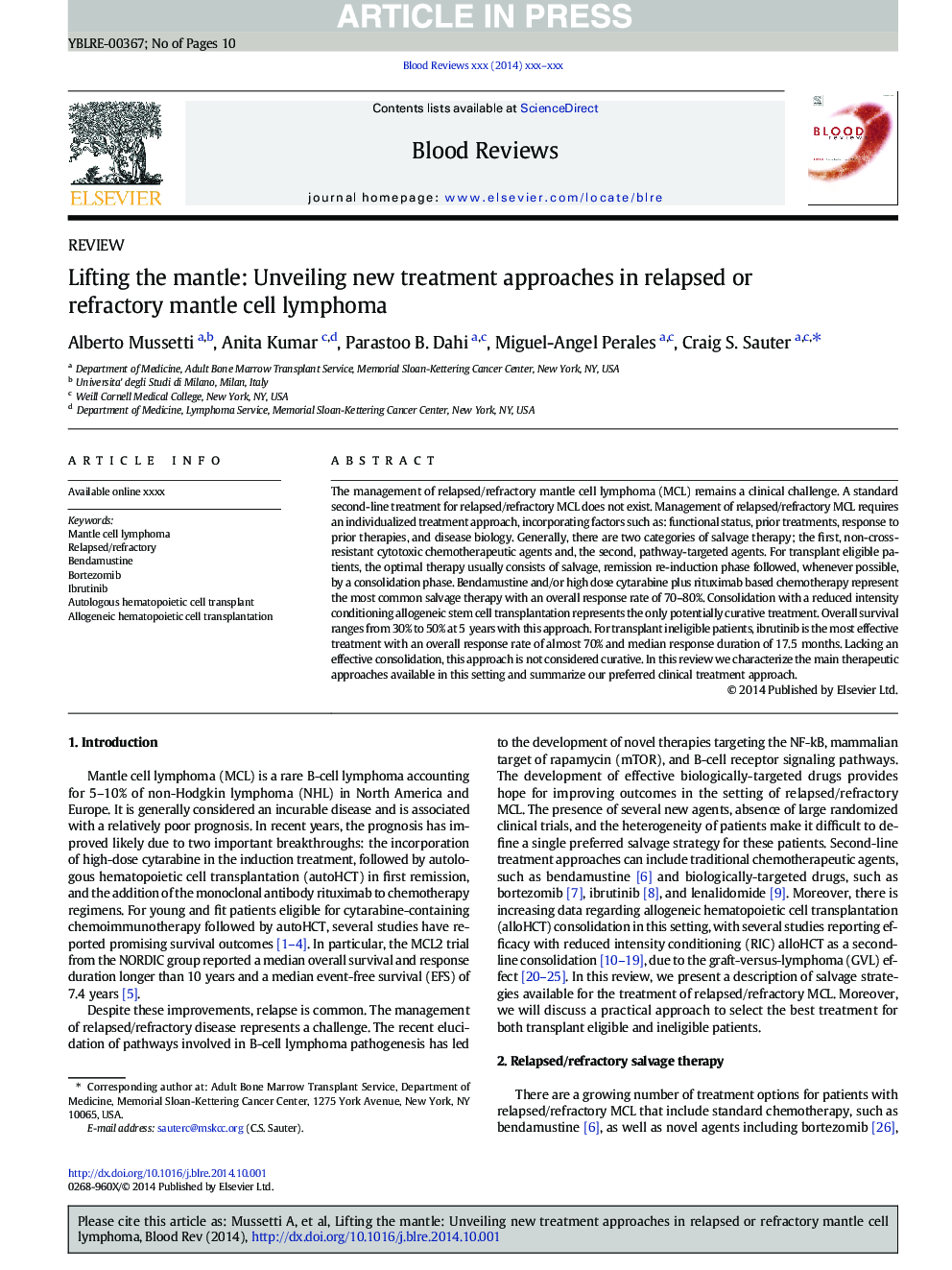| Article ID | Journal | Published Year | Pages | File Type |
|---|---|---|---|---|
| 10895764 | Blood Reviews | 2015 | 10 Pages |
Abstract
The management of relapsed/refractory mantle cell lymphoma (MCL) remains a clinical challenge. A standard second-line treatment for relapsed/refractory MCL does not exist. Management of relapsed/refractory MCL requires an individualized treatment approach, incorporating factors such as: functional status, prior treatments, response to prior therapies, and disease biology. Generally, there are two categories of salvage therapy; the first, non-cross-resistant cytotoxic chemotherapeutic agents and, the second, pathway-targeted agents. For transplant eligible patients, the optimal therapy usually consists of salvage, remission re-induction phase followed, whenever possible, by a consolidation phase. Bendamustine and/or high dose cytarabine plus rituximab based chemotherapy represent the most common salvage therapy with an overall response rate of 70-80%. Consolidation with a reduced intensity conditioning allogeneic stem cell transplantation represents the only potentially curative treatment. Overall survival ranges from 30% to 50% at 5Â years with this approach. For transplant ineligible patients, ibrutinib is the most effective treatment with an overall response rate of almost 70% and median response duration of 17.5Â months. Lacking an effective consolidation, this approach is not considered curative. In this review we characterize the main therapeutic approaches available in this setting and summarize our preferred clinical treatment approach.
Keywords
Related Topics
Life Sciences
Biochemistry, Genetics and Molecular Biology
Cancer Research
Authors
Alberto Mussetti, Anita Kumar, Parastoo B. Dahi, Miguel-Angel Perales, Craig S. Sauter,
